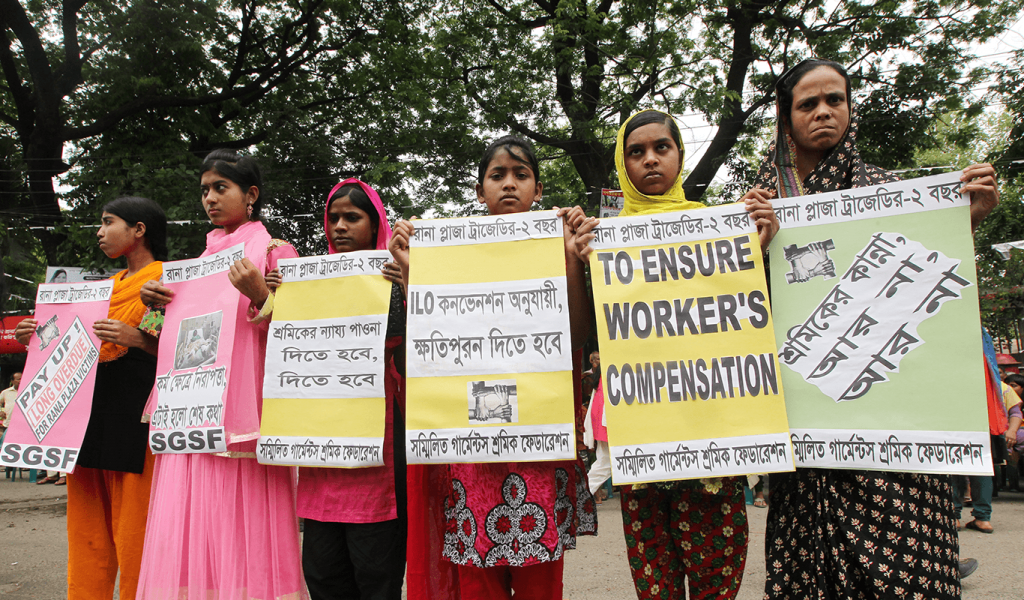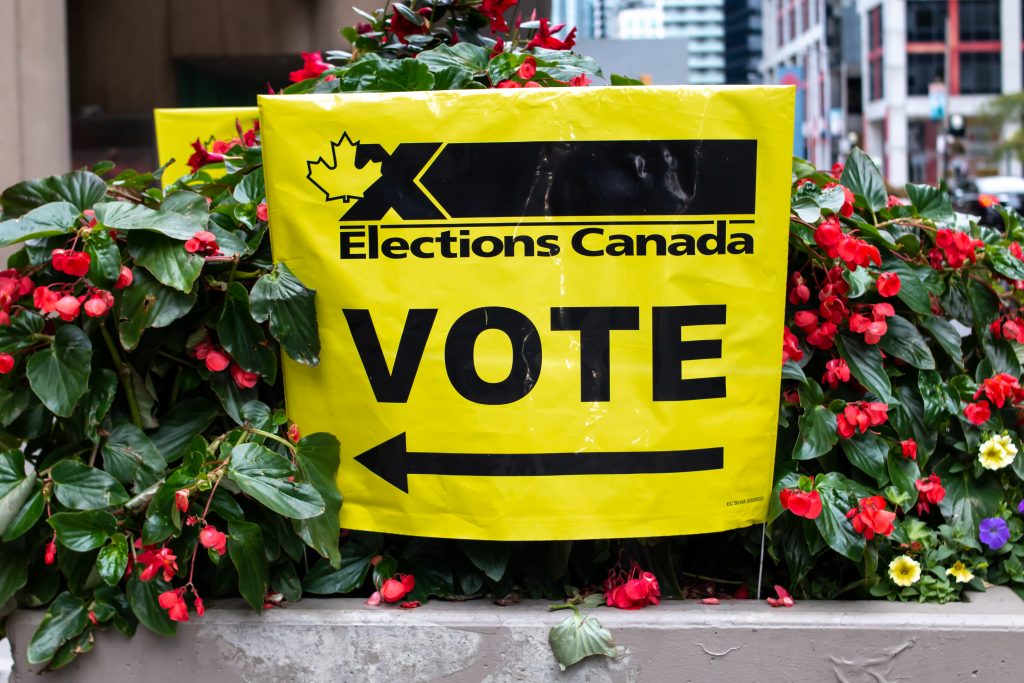Let’s end period poverty. For good.
How do you talk about your period? Sure, menstruation may not be a common topic amongst friends on a Friday night but when it does crop up — do you hit on things like your mood swings, cramping or food cravings? What about issues around buying tampons or pads? Or not having enough? Or not having access to them at all?
More than 1.8 billion people around the world menstruate, which is a normal biological process. And yet, periods are something that can have a serious impact on a young girl or woman’s life. For some, there’s an issue of access. For others, it’s affordability. Add to that cultural norms which stigmatize menstruation, and we see that menstruating can play a large role in taking a girl or woman out of participating in regular daily routines like work or school.
Something as normal as a period should not limit the opportunities and choices girls and women have. And yet, in 2019, period poverty, a term used when women and girls cannot afford menstrual products, is an issue. Google it. Numerous stories in economically rich countries like Canada, the United Kingdom and the United States come up. And these stories are sparking national conversations – in Canada, the Canadian government wants workers in federally regulated workplaces to have access to free menstrual products. Here at Oxfam Canada, feminine hygiene products are now available in all bathrooms.
But that’s not always the norm.
In fact, where more action needs to be taken is where period poverty strikes hardest and most acutely. In places with high rates of poverty and that have been hit by humanitarian crises – including in refugee camps.
Reality check — it’s not all ‘normal’
A recent trip to the Nduta camp, which houses more than 92,000 Burundi refugees in the western region of Kigoma in Tanzania, provided a humbling snapshot for me of what girls and women face when it comes to menstrual hygiene.
As a woman who grew up in Canada, I’ve had the relative privilege of not having to go without feminine hygiene products. When I experienced my period for the first time, it was an awkward and confusing time – all the normal emotions young girls face. But it eventually became a non-issue, a part of my daily life because it wasn’t stigmatized by a lack of resources or support.
But for the women and girls in the Nduta camp, almost nothing – barring the biological – about getting their periods is a non-issue. For some, there is no running home, or to the shop, or to the bathroom to get the menstrual hygiene products they need. Because their reality is they may be unaffordable, there may not be any available, or it may be a combination of the two.
The Facts. Period.
A 2018 Gender Analysis study done by Oxfam found only 1.6 per cent of the women in the Nduta camp could afford to buy reusable pads. That’s an alarmingly small number.
But what if they had the money? Ironically, even if they had the money to buy pads, it’s illegal for the refugees to go outside the camp without prior permission. And buying pads inside the camp is very challenging. All to say, this leaves few options for women and girls in the camp, who in the end, have to rely heavily on aid agencies and traditional methods to meet their feminine hygiene product needs.
The good news? There are organizations like Oxfam in the camp distributing dignity kits, which include a kanga (a layered cloth made of pieces of thick, colorful fabric used for making traditional east African dresses), underwear, soap, a bucket for cleaning and reusable pads. Along with the dignity kits comes awareness on how to use them. Oxfam has also built separate washing facilities or ‘period-friendly’ bathrooms for girls to clean their pads and cloths.
The not so good news? Reusable pads only last a year and the need is greater than what aid agencies can provide. This means that once the pads can no longer be used, the ability of girls and women to move around is often again restricted.
“In an ideal world, of course we’d want to meet all the needs. But you look at a camp like Nduta, and you’re looking at 90,000 people. The need is greater than what we can provide, which is typical in humanitarian responses.” ~ Fatuma Shideh, Oxfam Canada Humanitarian Program Officer.
And even when the reusable pads and the kanga are available, they present hygiene challenges.
Washing reusable and cloth pads requires water and detergent, bloody cleaning water must be disposed of safely, and cloth menstrual pads are not very absorbent and need to be washed, dried and cared for multiple times throughout the day. All of this is difficult in a refugee camp. Throw in issues like having hepatitis, infections or sexually transmitted diseases when on your period and the problems girls and women face – as well as the public health risks – magnify.
The real price of periods
My Oxfam colleagues and I visited a school in the Nduta camp for children between the ages of seven and 10, where roughly 1,600 girls attend. With the sheer number of young girls at the school, it wasn’t shocking to hear there were not enough dignity kits to give to those who were menstruating.
The teachers and social workers described situations where girls stopped coming to school because of their periods. Or if they did attend, they were distracted by the cloth not fitting properly or worrying about it leaking and staining their clothes.
“How restrictive is this? If you feel like you have to wash it or you’re leaking when you’re trying to get an education or just going about your day – it can be so difficult, when it doesn’t have to be. Those concerns are 10 times more elevated for the girls in school than what we in Canada go through.” ~ Fatuma Shideh
In the last report given to Oxfam, 60 per cent of the girls in the camp said their periods negatively affected their studies. Things like comfort, fit, absorbency, social stigma, having the proper facilities or the privacy to wash your pads and cloths all played a part in this alarmingly high number.
The situation is not any better for the Tanzanian communities surrounding the refugee camp.
Women and young girls in the host communities of Kitahana and Rusohoko, which encircle the camp, experience the same challenges. While these communities don’t face the same restrictions as refugees in Nduta when it comes to movement and business, Oxfam still found only 13 per cent of women in these villages could afford pads, with only 20 per cent using disposable pads and 80 per cent using local fabric, which is difficult to clean.
Luxury versus necessity
It’s difficult to understand feminine hygiene products as a luxury item and not a basic necessity in 2019. But here it is. And whilst aid agencies like Oxfam are on the ground, doing great work and providing what’s clearly needed – it’s still not enough.
On average, women spend 3,000 days of their lifetime menstruating. About half the world’s female population are of a reproductive age with the majority spending between two to seven days menstruating each month. Menstruation is a healthy, normal part of women’s lives. It’s how humans procreate, which in itself is celebrated worldwide.
So, my question is – when will we make period poverty a thing of the past? If we care about the lives and opportunities of girls and women around the world, it’s time to put an end to period poverty. For good.
Today is Menstrual Hygiene Day. Take time to share why this issue matters to you – and share it with us – using this year’s hashtag #ItsTimeForAction

